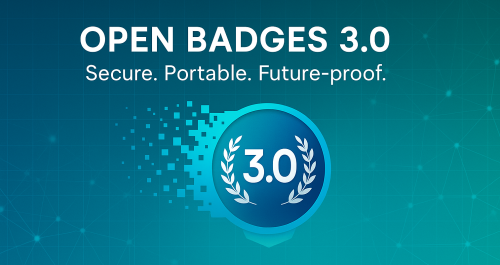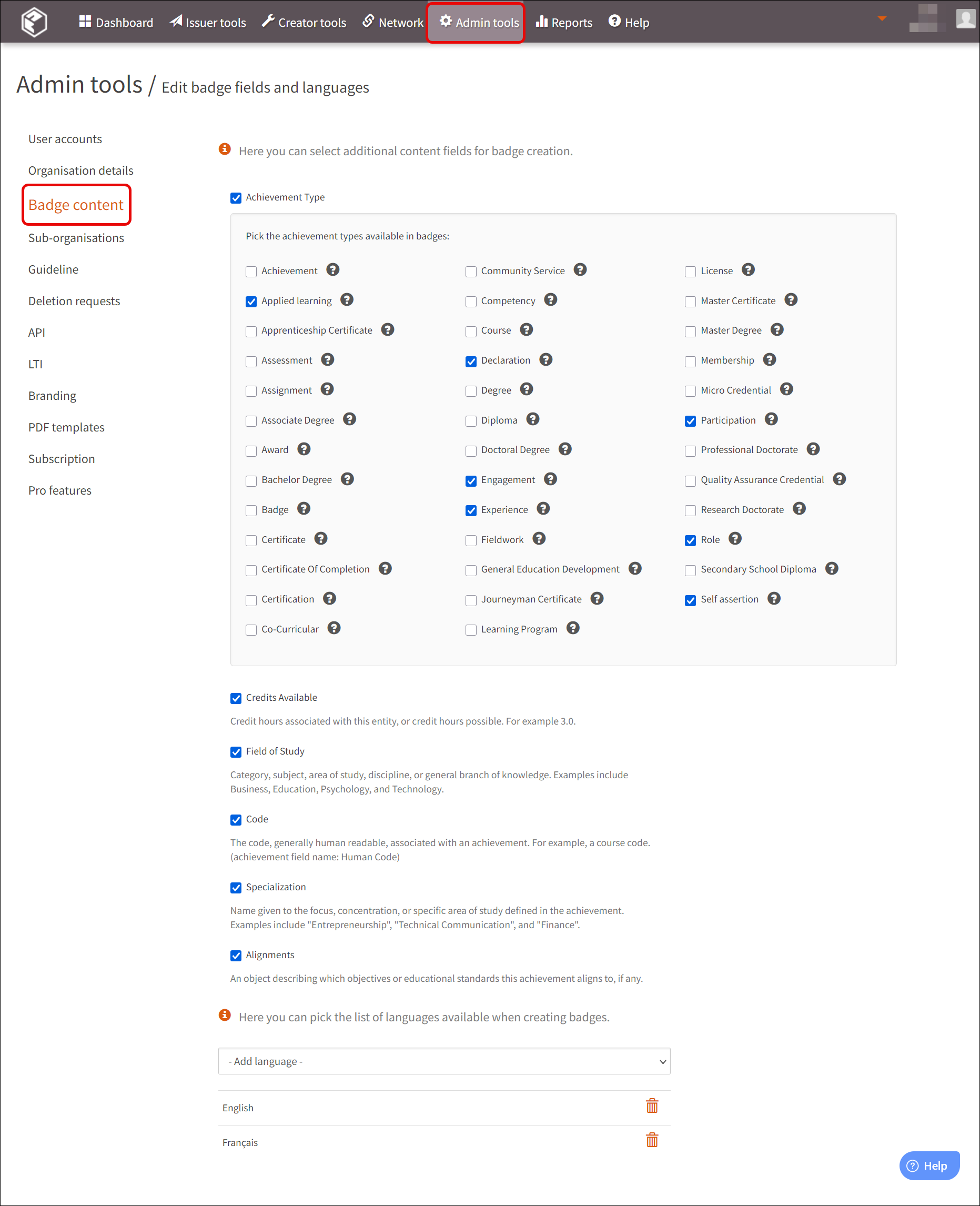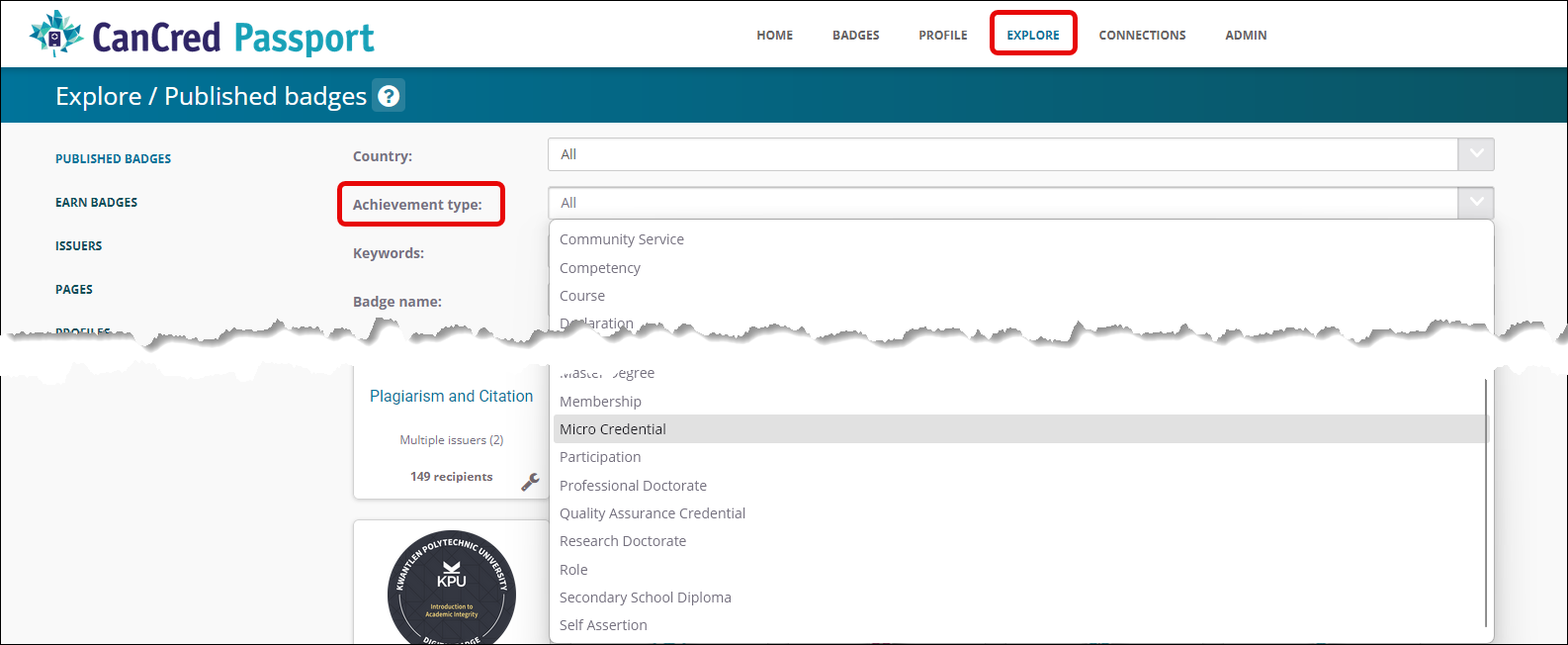CanCred badges are now Open Badges 3.0

LEARN MORE: Webinar on November 6, 9am ET
Register now for a free webinar from our partners at Open Badge Factory about how the Open Badges 3.0 standard will affect you as a CanCred badge issuer and your learners as badge recipients.
At CanCred, we’re committed to staying at the forefront of digital credentialing technology, ensuring that our customers always have access to the most advanced, reliable, and future-proof credentialing solutions available.
Upgrading to Open Badges 3.0
We’re thrilled to announce that, as of October 14th, both CanCred Factory and CanCred Passport have transitioned to Open Badges 3.0—the latest evolution in digital credentialing standards. This means that all badges issued with CanCred are now 3.0 badges, and CanCred Passport can receive and manage 3.0 badges from any 1EdTech certified badge issuer. The 3.0 standard is now fully operational on both our platforms, which are 1EdTech certified, bringing enhanced security, portability, and credibility to all your digital credentials.
What’s different about Open Badges 3.0?

The most significant advancement in Open Badges 3.0 standard, stewarded by 1Edtech, is its foundation on the W3C* Verifiable Credentials standard—a globally recognized framework that extends far beyond education into the broader digital identity ecosystem.
* World Wide Web Consortium - the main international standards organization for the World Wide Web.
Benefits for badge issuers and recipients
ENHANCED TRUST AND SECURITY
Open Badges 3.0 enhances the security of digital credentials through advanced cryptographic signatures, making badges significantly more tamper-proof and trustworthy. With this improved verification technology, the Open Badges have significantly improved their value as a credible currency for recognition. Open Badges 3.0 enables institutions and employers to validate credentials with complete confidence, knowing they’re authentic and unaltered. This builds trust and value for badge issuers, recipients, and organizations alike.
Even more important: because they are cryptographically signed and contain all the data needed for validation, 3.0 badges maintain their verifiability over time—even if the original issuing platform undergoes significant change or ceases operation. This ensures that badge recipients’ achievements remain provable and valuable throughout their careers.
ENHANCED PORTABILITY
Portability is one of the key benefits of 3.0 badges. They can be stored in secure digital wallets and can move freely across different platforms and systems. This means badge recipients are no longer confined to a single platform. Whether sharing badges with potential employers, integrating them into portfolios, or displaying them within learning management systems, 3.0 badges work seamlessly across online environments.
A Seamless Transition
For badge recipients and Open Badge Passport users, this upgrade is practically invisible. Everything you love about receiving, sharing, and displaying your badges works exactly as before. Both 2.0 and 3.0 badges display seamlessly in CanCred Passport and other passports using Open Badge Passport technology.
What’s new for Admins and Creators in CanCred
CanCred Factory now offers badge designers the ability to add optional additional fields included in the 3.0 standard in their badge metadata:
- Achievement Type
Described in detail below - Credit Available
Credit hours associated with this entity, or credit hours possible. For example 3.0. - Field of Study
Category, subject, area of study, discipline, or general branch of knowledge. Examples include Business, Education, Psychology, and Technology. - Code (Human Code)
A code, generally human readable, associated with an achievement. For example, a course code. (achievement field name: Human Code) - Specialization
Name given to the focus, concentration, or specific area of study defined in the achievement. Examples include “Entrepreneurship”, “Technical Communication”, and “Finance”.
They join these fields carried over from Open Badges 2.0:
- Alignments
An object describing which objectives or educational standards this achievement aligns to, if any. - Add language
The option to display badge metadata in alternate languages.
These optional fields are selectable by Admins for the use of badge Creators in a new Badge content page under the Admin tab:

FLEXIBLE CONFIGURATION
Since not all of these 3.0 fields are useful for every issuer, the default approach in CanCred Factory is for Admin users to select which fields are available in their environment. For “Achievement Type,” Admins can choose only the badge types that are relevant to their badging initiatives. The Admin’s selections appear for Creators in the badge editor as new fields that can also be applied to previously created badges.
This makes it possible for a CanCred issuing organizations to classify all the badges they have created in their environment with standardized metadata badges, making them searchable based on these criteria. For example, it’s now possible to search CanCred Passport for all badges where the achievement type is “Micro credential”.

Supporting all forms of recognition with Achievement Type
The source for the “Achievement Type” classifications is the Credential Transparency Description Language (CTDL), developed by Credential Engine, a U.S. non-profit whose mission is to map the credentials, qualifications, and skills landscape. CTDL’s classification has a strong focus on formal qualifications that doesn’t align well with the flexible recognition powers of Open Badges and the inclusive principles of Open Recognition of learning and achievement in non-formal and informal contexts. Fortunately, the Open Badges 3.0 standard allows for extensions to Achievement Type to better include non-formal and informal learning contexts.
CanCred has collaborated with our European partner Open Badge Factory to add the following flexible and inclusive Achievement Types to better describe badges issued outside of formal settings:
- Applied Learning
- Declaration
- Experience
- Engagement
- Participation
- Role
- Self assertion
We will continue to enhance badge classification based on customer feedback to ensure this continues.
Looking forward
Open Badges 3.0 represents a significant step forward for the recognition ecosystem . It increases the credibility of Open Badges, expands their potential applications into new sectors, and (at least in theory) provides badge recipients more freedom and control in “learner-centric” context.
Practically speaking, 3.0 works well for badge creation, but there are still many open questions related to ecosystem functionality and especially the development of wallet services, which involve not only technical development but also current practices and policy considerations that are still evolving. CanCred will continue to work with Open Badge Factory, other partners and other stakeholders in the Open Badges community to resolve these questions for the benefit of all.
LEARN MORE: Open Badges 3.0 webinar on November 6, 9am ET
Register now for a free webinar from our partners at Open Badge Factory about how the Open Badges 3.0 standard will affect you as a CanCred badge issuer and your learners as badge recipients.

